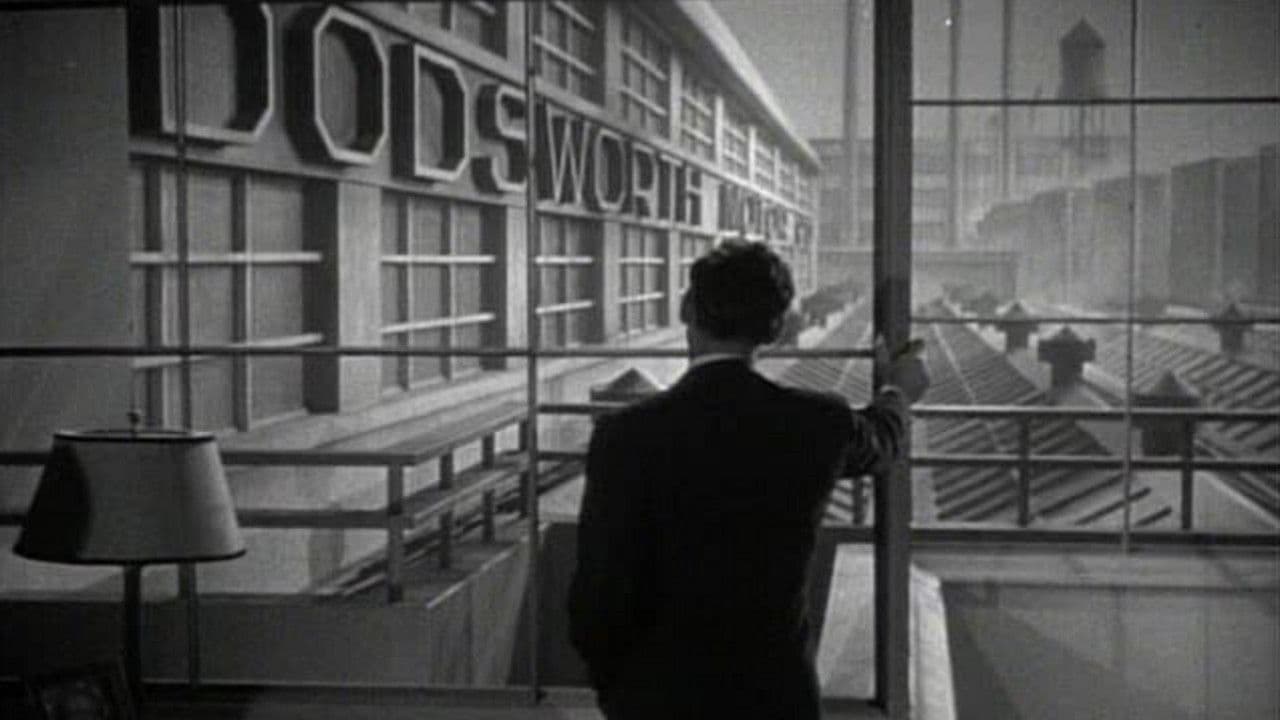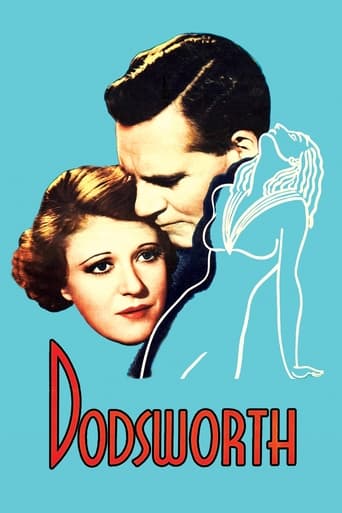Maidexpl
Entertaining from beginning to end, it maintains the spirit of the franchise while establishing it's own seal with a fun cast
pointyfilippa
The movie runs out of plot and jokes well before the end of a two-hour running time, long for a light comedy.
Bluebell Alcock
Ok... Let's be honest. It cannot be the best movie but is quite enjoyable. The movie has the potential to develop a great plot for future movies
Yash Wade
Close shines in drama with strong language, adult themes.
Art Vandelay
Like a lot of Hollywood movies in the studio-bound 30s, this is a stagey, screechy talkfest.
Sure, for people who didn't live in a city with live theatre, this passed for mature entertainment. But all these decades later it's just a relic of an era of static film-making. There isn't a single interesting visual shot in the entire movie. The plot barely exists. It's just two cranky people crabbing at each other for nearly two hours.
Frankly, the whole movie is tiresome.
And this from someone who considers Who's Afraid of Virginia Woolf one of the greatest films ever made.
calvinnme
...when movies were not that realistic - 1936. Sam Dodsworth (Walter Huston) for the sake of his wife's happiness, has sold the car company that he created and built up with his own two hands and made plans for an extended trip to Europe. You can see the sadness on his face as he leaves his old world behind. On the steamship to Europe the trouble begins. Dodworth's wife, Fran (Ruth Chatterton), begins a flirtation. Dodworth begins a friendship with a divorcée, Edith Cortright (Mary Astor), a divorcée living in Italy, on her way back home. Sam tries to make the best of this upending of his world and sees this as an opportunity to learn new things. However, Fran's vanity, and the flirtations of the European men she meets, begin to have her pulling away from her husband. She eventually dumps Sam so she can pursue her life and a new love - a much younger one - in Europe. I love the irony with Fran and her attitude towards Europe. She tells Sam that "they're my people, they understand me, or something to that effect.Later she finds out different in the form of the redoubtable Maria Ouspenskaya, who asks her all sorts of nagging questions, for instance, how old are you? It is made clear to her that she is unacceptable as the old wife to a young husband who is expected to produce heirs. There is a difference between spending a summer at an Italian villa and trying to marry the son of a traditional European family. The hurt look on her face as she realizes she has been abandoned when her beloved refuses to go against his mother's wishes will probably always linger when I think of this movie. So much for Europe's understanding. Chatterton is so good. I may not warm up to Fran that much, but Ruth makes her interesting. Fran is a human being, not just a bad person, thanks to Ruth. Meanwhile Sam, while nursing his wounds, meets up with Edith again, and her love and support has him making business plans again. The words told to him by an old friend at the beginning were true - a man like him will always need to be building something. Edith Cortright in the form of Mary Astor remains for me one of the most appealing characters ever.. That long, deft scene between her and Sam is my favorite. She says to him, "We? ... we?" in her you're-going-to-take-me-with-you realization and later says to him, "I think I must love you," to which he replies, "And I'm glad of it..." which on the surface doesn't seem all that romantic but it somehow works perfectly with these two.But then that dreaded phone call from Vienna from the abandoned Fran, the way poor Edith tries to shield Sam from that call, and later making her I-won't-let-you-go speech. She doesn't come across demanding or petulant, she actually makes sense. So what happens? Watch and find out. Remember Sam is a conventional guy, and conventional guys in 1936 "stick". I'll just say that never has a to-do over the placement of luggage produced such an epiphany in a film. I'll also say that for this to come only two years after the production code it is a very real treatment of marriages and how people grow apart, and maybe they were very different from the beginning, but only after the children are grown and they are alone again do they figure that out.
atlasmb
"Dodsworth" is an adaptation of a novel by Sinclair Lewis. I have not read the novel, but every film should stand on its own anyway.The film follows the marriage of a couple who decide to retire and travel abroad. The husband, Sam Dodsworth (Walter Huston), is dedicated to his wife and her wishes. His primary character trait is duty. The wife, Fran Dodsworth (Ruth Chatterton), wishes to get away from her routine life. Her primary character trait is vanity.While on their excursion, they quickly drift apart. To quell her fear of aging, Fran seeks the attentions of other men. Sam--a man of action and industry--finds himself lost in the inaction of leisure.The acting in this film is wonderful. The photography is beautiful. All of the production values--from sets to music--are first class.In my opinion, the story challenges the conception that marriage is about self-sacrifice. It shows the damage that is wrought when one person dedicates his existence to the happiness of another with no regard for his own. It's an important message that gives "Dodsworth" consequence.
fincherian
I don't know how to review this movie, because there's no one aspect I can comment on without looking like I'm singling them out over the others. Every part of this movie adds up to something so much greater than the sum of its parts. Ultimately, I suppose the credit goes to the director, William Wyler, though in 1936 I'm not sure he would have had the same kind of control a director can have now with casting a movie, deciding on a screenwriter, crew, and that sort of thing. But it all comes together for something so perfectly conceived, that I can't really just mention the story, or the performances by Walter Huston and Ruth Chatterton; the writing, the cinematography, or set design.A description of the movie or even the type of film or genre it's in wouldn't do it justice in the way that I could at least describe some of my other favorite movies. It does everything right-it's so sophisticated, sensitive, mature, in dealing with the marriage of a middle aged couple going on their first vacation in twenty years together.Minor spoiler-it deals with so much, but if you were to describe the story, it's about how Dodsworth (Walter Huston) and his wife, Fran (Ruth Chatterton) leave America and really try to enjoy themselves and each other for once. But Fran is insecure about her age and her older husband, and this insecurity begins to push her away from him and towards, well, not necessarily even other men, but away from anyone.And yet, that doesn't come close to describing what this movie is really like or what it's about. It's every moment that's played so sensitively. It's got lots of emotion, but it's not sentimental. It's got a ruthless efficiency in building each scene upon the last, clearly giving each character different motivations and showing how their relationships change.I haven't seen this movie show up in many discussions or top lists, but it doesn't matter. It doesn't affect anything about the movie, whether it's under seen or under respected. TCM showed it one evening as one of their Essentials, which gave me some exposure to it. Then I read David Mamet's book, Bambi vs. Godzilla, which keeps referring to Dodsworth. In it, he says that it's one of a few perfect movies. So I finally bought the DVD and watched it in earnest, and it was a singular experience.For all the words like "mature" and "sensitive" or "grown up" that get used to describe it because of just how realistically it shows the dynamic of a marriage that is unraveling, those don't really describe what the movie is about. Yes, it is all of those things, and it is refreshingly realistic and attentive to the details of the relationships in it. More than most movies, and perhaps surprisingly so for any movie of its period. Or today.Dodsworth is more than those things because it's like an event that transcends movies. This isn't really even a review. I just feel like someone has to add, for anyone curious, what an incredible experience this is. It's a jewel of a movie. Whenever I see a movie like this, and see how most people regard movies today and see them mostly on their opening weekends (not to be elitist, because there's a lot of reasons for that, and I'm not using my interest in movies to leverage myself as having better taste-and I know people would love this movie if they saw it), I feel like I've found this secret. A movie like this is subversive to me, and that may be peculiar because of how much I love movies and want to make them, but I feel like it's an alternative to a life of working a regular or corporate job and having what I would (though I'm overstating it for lack of better words) call a mundane life.Movies in general, and especially singular movies like Dodsworth, are like secrets to me of how incredible a single experience can be. I have been thinking about it constantly since I saw it, and whenever I see a movie that even approaches it's greatness, my mood is lifted, my problems seem to go away, and a movie like this can seem like all I need or care about, because it's like an experience in another dimension. And it's so quotable-the dialogue comes so densely in pace and meaning, and it's got lines that will stun you.To borrow a line from the movie, if you watch it, you may become fascinated by it.

